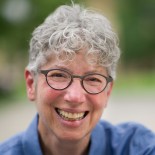On speech and talking, protest and possibility
The following was published in the Opinion section of the Daily Princetonian on November 23, 2015:
Here’s the thing: Ours is a campus with a long history and an infinite future that’s wrestling with the currents of the roiling present. We’re part of the Ivy League, but Princeton is hardly an ivory tower. And although we like our “orange bubble,” it’s not really the protective skin we sometimes believe. Nor should it be. Everything we do at Princeton has some relationship to the world outside our doors. That relationship should be robust, as well as continually revised, reconsidered and renovated.
From the Black Justice League’s protest in Nassau Hall, to the Latinx activists’ town hall meeting, to the Princeton Open Campus Coalition and more, recent campus activism demonstrates our necessary connection to the world beyond. These positions represent a constellation of national political views. Even the form of our campus protests mirrors the style and tenor of those elsewhere.
We’ve grown rusty at speaking to one another with respect and listening with open hearts and minds. Our ears ring in the echo chamber of social media. We watch with voyeuristic thrill while politicians duke it out in a media spectacle that’s a poor substitute for real forums about ideas that matter.
Last week at Princeton felt reminiscent of the national discourse in some ways. Hearing student protesters shout down President Eisgruber shocked and embarrassed me. But in other moments, last week gave me hope that our community might in fact do better. During the time I spent at Nassau Hall, I saw students sitting on the atrium’s cold stone floor, working on their laptops and talking with one another. I watched some students facilitate small group discussions about racial justice.
I also watched a video made by Azza Cohen ’16, in which she filmed a diverse range of students speaking about the protests, and one by Victoria Davidjohn ’19, for which she assembled 40 students to make art that would (in her words) “remind the campus … that we should keep love and community and hope at the forefront of our minds.” I encourage you to search out both of these moving videos.
Princeton is a community to which, in one way or another, we’re all placed in relation. I find camaraderie and belonging in many places on campus and move through others where my own presence sits awkwardly with the majority. My identity markers and the different relationships to social power they entail influence my experience, but my beliefs also determine how and with whom I engage. I feel most like I belong at Princeton when I’m part of a community of intellectual respect and mutual care. That’s the affinity group I would select and the coalition of which I want to be a part.
The week’s conversations have left many of us tired and overwhelmed, confused or conflicted. Some of us are hurt and frustrated; some are excited and hopeful. My own experiences have left me weary but energized. I’m glad we’re having passionate, invested conversations about identity, history and speech. I appreciate the disagreements among us. I’m heartened by our potential for productive change in multiple directions. I’m optimistic enough to think we’ve embarked on important, clarifying conversations, and that we will (we must) continue to talk more. Sharing and examining ideas is a necessary precursor to social change.
But please: let’s not let orthodoxy dictate how we speak. Please, let’s not shout one another down, in person or online. Please, let’s not roll our eyes or react derisively to one another’s speech. Please, let’s not judge one another according to narrow, sectarian, finally impossible definitions of authentic identity. Please, let’s not attack one another anonymously on YikYak or Facebook or in the comments section of this newspaper; anonymity only covers cowardice. Please, let’s apply our impressive intellects and creative insights to figure out better questions to ask one another, and frame our responses in generative, compassionate, forward-thinking ways.
As a community, we might recall the transgender performer-activist Laverne Cox quoting Cornel West in her wonderful talk at Richardson Auditorium last Wednesday night: “Justice is what love looks like in public.” Please, let’s continue looking for love, even as we feel the disparities in our own experiences of what it means to be fully human on this campus. I so want that for us all.
Jill Dolan
